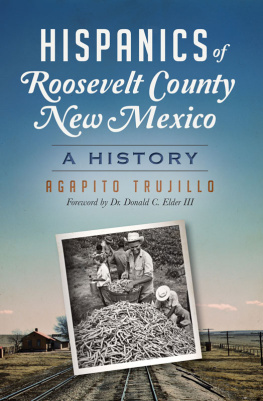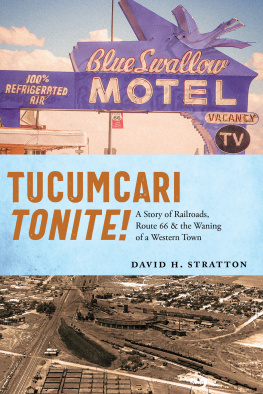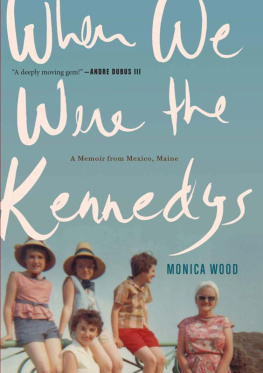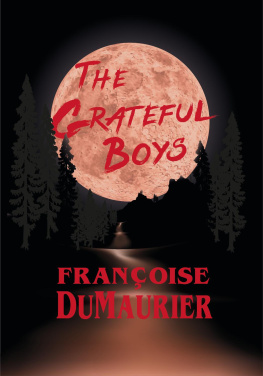Pie Town
Lynne Hinton

Dedicated to
Jasie Barringer, Carolyn Aldridge, and Art Barrett,
for open hearts and open homes.
We come to the Land of Enchantment by way of your hospitality.
Contents
T hey come. The two of them, desperate, longing, alone, and displaced, they come because they are told to come. One beckoned from whispers speaking in lingering dreams, directed by stars and canyon voices. The other, obeying the orders of stern and reasonable men, men of piety and certitude. They come because they know no better, because they have nowhere else that will receive them. They come to settle what cannot be settled. They come to find what it is they miss and what it is they never knew existed.
Neither of them has a sense of this desert, the forests, Cibola or Gila, no knowledge of its wide open plains named, by the Spanish, San Agustin, a feeble attempt to wrangle a blessing in their uncelebrated discovery. They do not know the long winding dry springs, Largo and Mangas Creeks, nor have they walked the road through the tiny village of Quemado, with its famed lightning field, or across the meadows studded with short scrubby pinion pines. They have not lifted their eyes to see Madre Mountain Peak or ridden the dusty trails south to the Baldys, Whitewater, and Mogolion, following the tracks of elk and deer and lone gray wolves.
They do not know this is hallowed family land, my mothers mothers land, the land of my ancestors and the old ones. They have not learned that this is my familys heritage, Zuni, gathered and scattered along this territory, centuries ago, living here long before the farmers, Catholic and Spanish, moved from settlements north and east to establish villages of their own, and longer still before the Panhandle Texans and southern plains homesteaders came riding into town, laying claim to earth and making borders on property that was not theirs to possess. They do not know that this is the place of aged secret trails and the sacred Salt Lake of my people and their tribes.
This is my home, the place where I took my first breath, landed my first step, laughed my first laugh, and shed my last tear. This is the place where I fell in love with red skies and clear black nights, the sky dotted with stars, and afternoon rains, the smell of sage, and the high-pitched cries of coyotes, the dance of red-tailed hawks. This is the place where I fell in love with silence and one man who knew the name of every flower and seed and who looked at me as if I were the sun. This is the place for which I long even when I sit among the spirits, float above clouds, glide across galaxies. This is my home, and by the time I came back, and though nothing had changed, it still seemed to me that I had been gone far too long.
These two will never understand, however, that I came not for this place, not for them, and not even for the man who grew bushes of sweet lavender and tall stalks of pink and rose hollyhock. I am here not for the man who thought I was the sun, but for the child who was born broken and unformed, the child who was to take my place but who arrived too early and too fast. I came for him, and as if he had been waiting, he knew me when I first appeared. Lady, he calls me, the one who was here when he was born and the one who has never left his side.
I doubt he will speak of me to these two newcomers because he rarely talks about me to others, not because he doesnt know me or doubts my presence, but because he believes I am a gift to him and he worries that if he speaks of me casually or too much or to too many people, I might find him indulgent and selfish and leave. I doubt, however, that I ever could. Especially now. Especially as the winds speak of change, the clouds of coming storms. Especially as they arrive.
He is, after all, my connection to all that I lost in death, my link to loved ones and earth and desert, and I am his connection to all that he lost in birth, his link to all that is beyond the land with its low ceiling of sky. And together we rely upon the thin air that somehow offers enough breath and lift for us both, the weaving of our two spirits, and this place we both know best, this place the newcomers seek, this place we both call home, this place known as Pie Town.
P ie Town. Father George Morris repeated the words the Monsignor had spoken. He echoed the name of his assignment without allowing for any emotion. He was not pleased, but he had no say in the matter. This was the place chosen for him. This was to be his parish, Pie Town, New Mexico.
His first ministry, his first call, was a three-point charge, three churches to serve as pastor, that was more than a hundred miles from the Catholic Diocese in Gallup and more than a lifetime away from everything he had ever known, every place upon which he laid claim, every sight that had become familiar. This was where he was instructed to start a new life, where he would live out what he believed had been dictated by God, discerned by pious and faithful men, and written upon his heart. Here was the place where he would exercise the lessons he had learned, the faith he had been granted, and the service for which he had been ordained.
Everything Father George had prepared for, planned upon, worked toward, it was all about to come to pass in a wide desert county surrounded by Indian land, mountain peaks, long empty plains, wilderness. He knew of Catron County because in his travel to Gallup to meet with the Monsignor, his journey west, he had studied every county in the forty-seventh state. He knew the parishes and the populations. He was hopeful he would be sent to Albuquerque or north to Taos. And even though he had been brought to Gallup and knew he was starting in the western corridor of the southwestern region, he had not expected this.
Pie Town, he said again as the Monsignor listened, letting the name of the town pass through his lips once more as if saying it somehow would help lead him to it.
You will report to Father Joseph, who waits for your arrival. You will move into the parish house just beyond the town limits. And you will begin your duties this weekend. Im sure Father Joseph will fill you in on the existing ministries of the Catron County parish and all of the details of your call.
Father George waited.
Is there something else? the Monsignor asked. He glanced up at the young priest and then down at the clock on his desk. It was just after four in the afternoon, and he had one more appointment. He was hopeful he would have time for tea before the early evening services he was scheduled to conduct.
Father George shook his head, sensing his superiors impatience. No, he whispered. It is my honor to serve God in this place and to serve you in the ministry of the Church in the state of New Mexico. It was a line he had rehearsed on the train from Cincinnati.
The Monsignor smiled. Im sure you will find your first call to be a rewarding one. You serve a diverse congregation. There are Hispanics, Anglos, and Native Americans in the area. He stood up and held out his hand. We are pleased you are here. There has been much prayer offered on your behalf.
The young priest reached for the extended hand and bowed. He understood it was time for him to leave, that there was nothing more to say. He backed away, his head still lowered in reverence. When he reached the threshold, he stepped out into the hallway, pulling the door behind him, closed his eyes, and breathed out. And so it begins, he said, turning to walk away.
Father George Morris hailed from Grove City, Ohio. Before accepting this call to New Mexico, before the train ride from Cincinnati to Albuquerque, the bus to Gallup, and the taxi to the diocesan office, George had never been farther west than Dayton and no farther south than Beckley, West Virginia. He began seminary, also in Ohio, at age sixteen, without even finishing high school, and had never met a Native American or spoken a sentence in Spanish. At age twenty-four, a senior in seminary, he had requested a mission call, an opportunity to serve the Church in a developing country. He thought it was the will of God for him to leave the United States, leave the seductive ways of Western civilization, the wily temptations of such a secular society, and minister to simple and eager parishioners. His mentor and the other priests at the seminary, however, thought otherwise.
Next page









